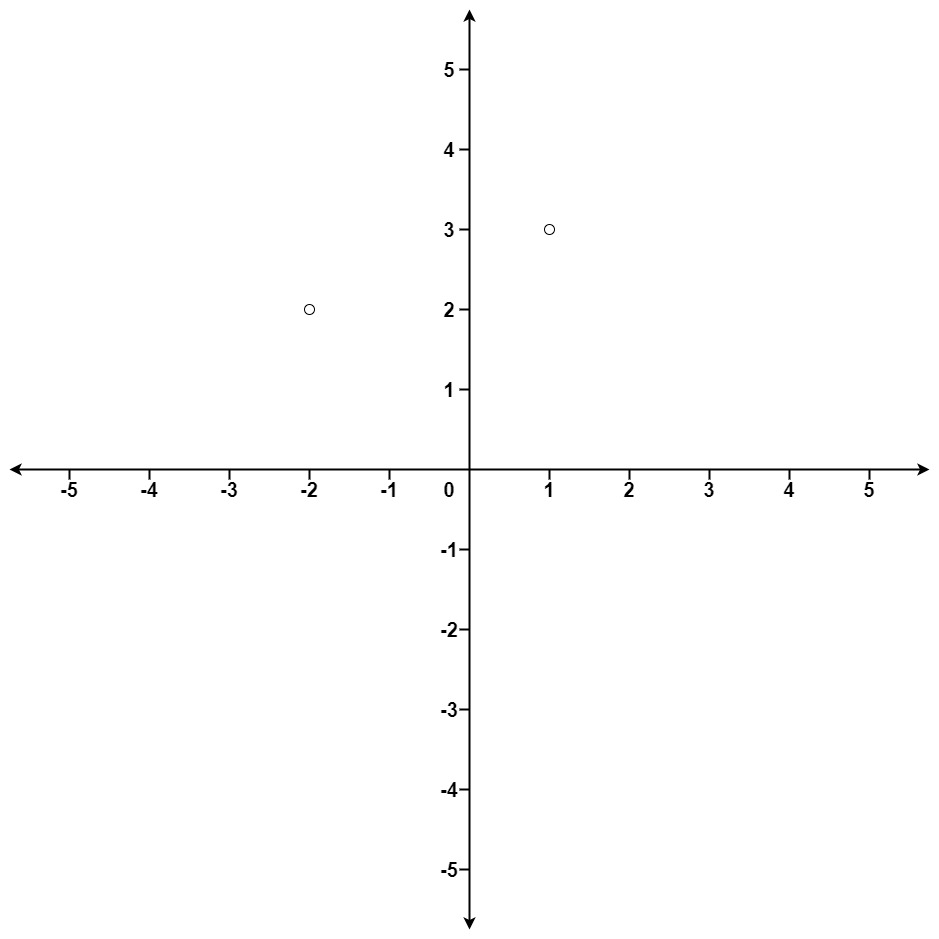K Closest Points to Origin
Given an array of points where points[i] = [xi, yi] represents a point on the X-Y plane and an integer k, return the k closest points to the origin (0, 0).
The distance between two points on the X-Y plane is the Euclidean distance (i.e., √(x1 - x2)2 + (y1 - y2)2).
You may return the answer in any order. The answer is guaranteed to be unique (except for the order that it is in).
Example 1:

Input: points = [[1,3],[-2,2]], k = 1
Output: [[-2,2]]
Explanation:
The distance between (1, 3) and the origin is sqrt(10).
The distance between (-2, 2) and the origin is sqrt(8).
Since sqrt(8) < sqrt(10), (-2, 2) is closer to the origin.
We only want the closest k = 1 points from the origin, so the answer is just [[-2,2]].
Example 2:
Input: points = [[3,3],[5,-1],[-2,4]], k = 2
Output: [[3,3],[-2,4]]
Explanation: The answer [[-2,4],[3,3]] would also be accepted.
Example Walkthrough
Let's illustrate the solution approach with a simple example. Imagine we have the following points and we are tasked with finding the k = 2 closest points to the origin (0, 0):
points = [[1, 3], [2, -2], [5, 4], [-3, 3]]
Following the thought process behind the solution:
We calculate the squared distance from the origin for each point which gives us:
For point [1, 3]: 1^2 + 3^2 = 1 + 9 = 10
For point [2, -2]: 2^2 + (-2)^2 = 4 + 4 = 8
For point [5, 4]: 5^2 + 4^2 = 25 + 16 = 41
For point [-3, 3]: (-3)^2 + 3^2 = 9 + 9 = 18
We sort the points based on their squared distances, without computing the square root:
Sorted points based on squared distances: [[2, -2], [1, 3], [-3, 3], [5, 4]]
Sorted squared distances: [8, 10, 18, 41]
We employ a lambda function in Python to serve as a custom sorting key: lambda p: p[0]*p[0] + p[1]*p[1].
We apply this lambda function within the sort() method to our points list to rearrange the list based on the calculated squared distances:
points.sort(key=lambda p: p[0]*p[0] + p[1]*p[1])
After sorting, points looks like this: [[2, -2], [1, 3], [-3, 3], [5, 4]].
We return the first k elements of the sorted array to get the k closest points. Since k = 2, we return the first two points:
closest_points = points[:k] # closest_points = [[2, -2], [1, 3]]
With this example, we have effectively walked through the solution approach described in the problem content. We sorted the points by their squared distance from the origin, avoided unnecessary square root computation, and returned the k closest points by slicing the sorted array without altering the original array's order.
Approach1 :
List :
using Sort the array using a custom comparator
Comments
Post a Comment